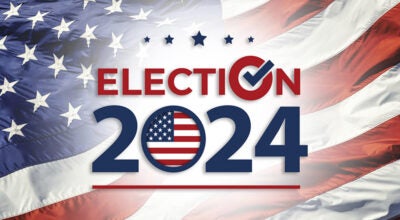State, local educators leary of Legislature’s charter school bill
Published 12:03 am Saturday, February 11, 2012
Gov. Robert Bentley and Republican leaders of the House and Senate is asking Alabama’s Legislature to create a limited number of charter schools that would be publicly funded and operate outside the rules and regulations of regular public schools.
Charter schools are public schools that are free to be more innovative and are held accountable for improved student achievement. They cannot charge tuition, teach religion, or have admission requirements.
The proposal has been met with skepticism at every level of education, from teachers to the state superintendent of education.
State schools superintendent Tommy Bice said this week he hopes that if a charter school bill is passed it will not do anything to hurt the existing public schools in Alabama.
“I want to make sure whatever comes out of it supports the public school system we have in place,” Bice said.
Locally, Andalusia City Schools Superintendent Ted Watson said Rep. Mike Jones, R-Andalusia, called together the leaders of the three local school systems recently to “see what was on our minds.”
“We all shared our concerns,” he said. “We discussed charter schools and it was determined that these schools are not high on the minds in Andalusia and Covington County.
“Our residents are reality happy with the education their children are receiving from the schools here,” he said. “However, those in the larger, urban areas are looking at is as a way to have the choices that they need.”
At a town hall meeting last week, Jones told the crowd he isn’t an advocate of charter schools.
“There’s no reason anybody would want charter schools in our district,” he said. “But in other districts, it’s different. If we needed help, I would want others to help us.”
Watson said he, along with other superintendents who attended the Alabama State Superintendents Association conference, were advised to use caution and said they were concerned that charter schools will take away money from existing schools and that education would turned into a for-profit entity.
“Another issue that comes up is the issue of segregating kids,” he said. “Additionally, the question about whether or not there would be special education in these school is also a concern.”
Watson said another issue is whether or not charter schools would be eligible for AHSAA athletics.
“That hasn’t been addressed either,” he said.
According to the National Conference of State Legislatures, there are many pros and cons to charter schools.
Pros:
• Charter schools provide families with public school choice options. Parents will have the ability to choose the school best suited for their child;
• Charter schools can act as laboratories of reform, identifying successful practices that could be replicated by traditional district public schools. Also, by waiving regulations in a limited number of schools, the most prohibitive policies can be identified and eliminated for all schools;
• Charter schools can act as laboratories of reform, identifying successful practices that could be replicated by traditional district public schools. Also, by waiving regulations in a limited number of schools, the most prohibitive policies can be identified and eliminated for all schools.
• Charters will lead to overall systemic reform through the pressure and competition of the choice mechanism.
• Charter schools, unlike traditional public schools are held accountable. If charters do not perform, they are not renewed.
Cons:
• Charter schools, due to their small size and limited numbers, will provide only some families with public school choice options, thereby raising issues of fairness and equity;
• Successful reform models such as New American Schools and Core Knowledge have already been identified. Why not attempt these reforms in existing schools? If rules and regulations are so burdensome, they should be waived for all public schools;
• Charter schools have an unfair advantage when competing against district public schools since they tend to be smaller and free from regulations. Charter schools have access to federal funds and other revenue sources;
• Charters are too limited in scope to adequately pressure the entire public school system;
• Charters are not accountable as they are freed from rules and regulations intended to ensure quality in public education.




